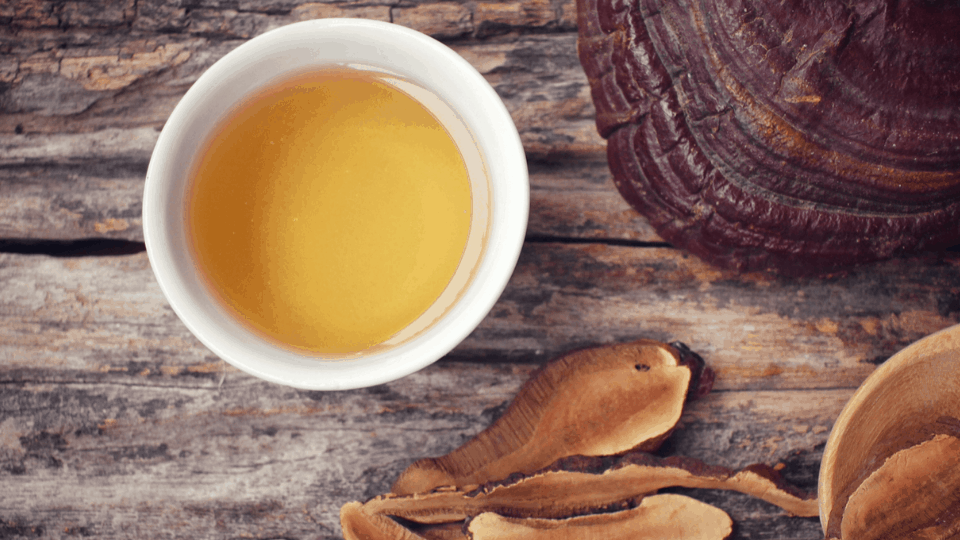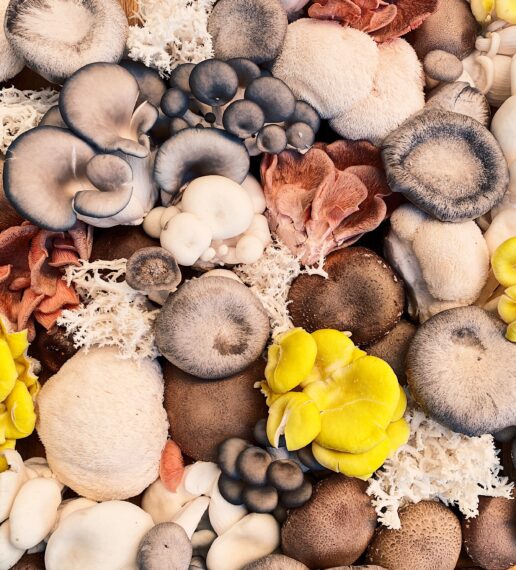11 Calming Herbs to Keep You Balanced and Alert
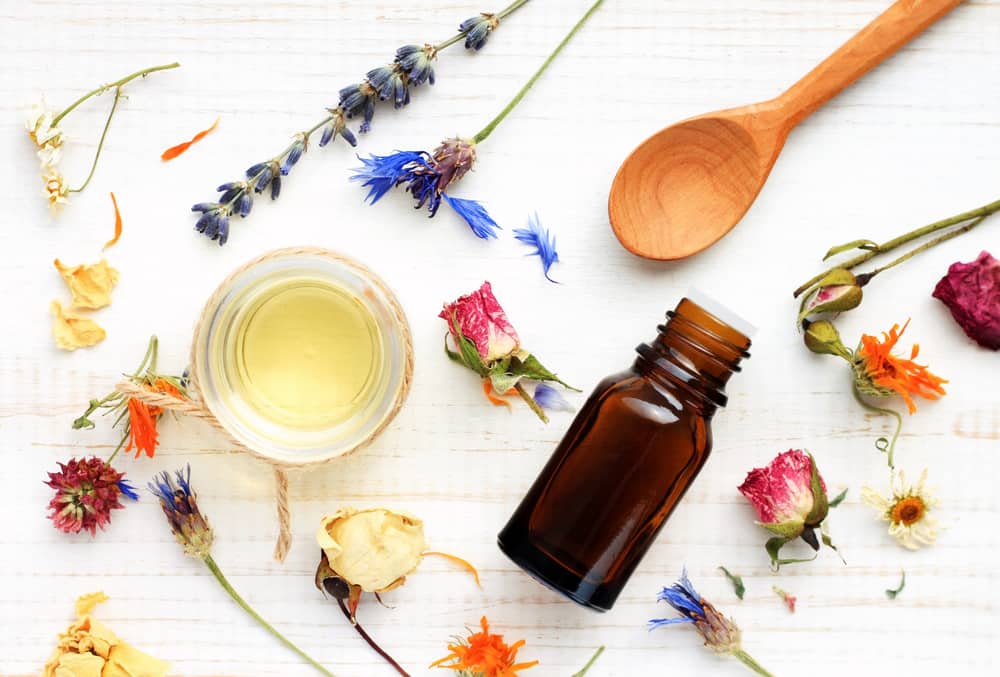
Life is hard.
Every day it seems like a new challenge appears to test your patience.
You may not realize that chronic stress can also lead to long-term health complications.
Living in a constant state of fight-or-flight tells your body to produce too much cortisol which can lead to weight gain, diabetes, mood swings, fatigue, and many other conditions. (1)
While it’s important to take steps to manage stress, certain calming herbs can help strengthen your body’s stress response.
11 Calming Herbs to Help Relax and Keep Your Mind Balanced
Adaptogens are some of the best calming herbs because studies show they might make your body and mind more resilient to external stress.
Keep in mind that adaptogens don’t work like prescription drugs for anxiety in that they kick in instantly. Instead, they need a few weeks to build up in your system before you notice the effects.
When you need something in a pinch, however, other herbs and essential oils – like lavender oil – can ease symptoms almost instantly.
1. Lemon Balm

Lemon balm, also known as Melissa Officinalis, technically belongs to the mint family.
Practitioners have used lemon balm for its calming effect since the Middle Ages or even earlier in modern-day Iran.
Studies also show that lemon balm may soothe anxiety symptoms and improve sleep. (2)
2. Chamomile
Chamomile, especially chamomile tea, is one of the most common calming herbs found in pantries.
Also known as Matricaria recutita, studies show chamomile enzymes bind to benzodiazepine receptors in the brain to possibly reduce symptoms of anxiety and insomnia. (3)
In one study, patients with generalized anxiety disorder reported relief after taking chamomile extract for eight weeks. (4)
3. Valerian Root
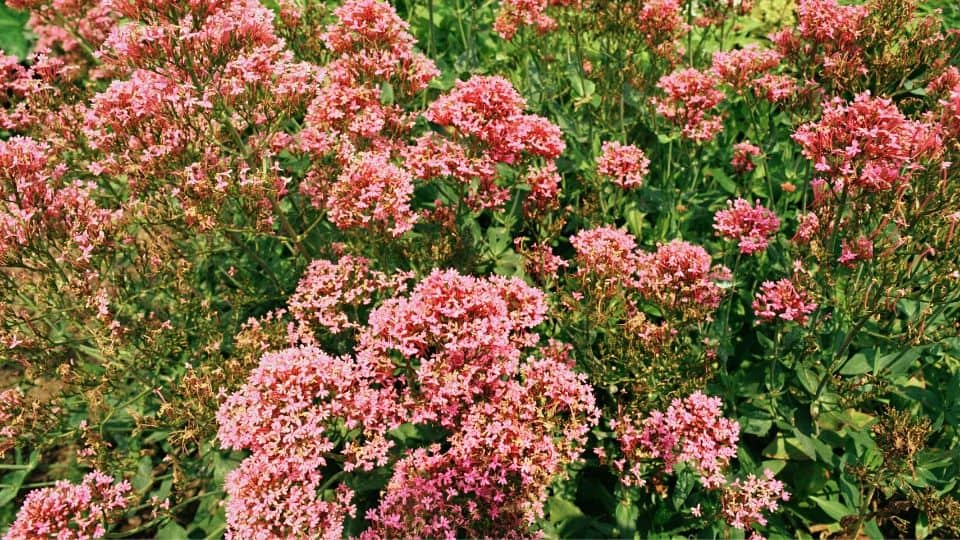
Research shows that valerian root might increase levels of GABA in the brain. GABA is a chemical responsible for feelings of calmness and wellbeing. (5)
Different people report varying effects with valerian. Some find it effective for reducing anxiety symptoms while others don’t.
However, it does seem like valerian works best when combined with other herbal remedies like lavender oil and lemon balm.
4. Lavender Oil
This is one of the most popular calming herbs in aromatherapy.
It’s no coincidence you’ll find lavender oil in soaps, Epsom salts, and personal care products.
Studies have found that lavender, aka Lavandula angustifolia, can reduce anxiety symptoms and calm the nervous system on par with anti-anxiety medications like Valium but more studies are needed. (6)
Lavender may also support mental health by reducing symptoms of depression. Add a few drops of lavender oil to your bath at night or to hand lotion at your work desk.
Topically, lavender oil also functions as an anti-inflammatory to support skin healing. (7)
5. Reishi Mushroom
Medicinal mushrooms contain powerful antioxidants to support the immune system.
They also function as adaptogens to strengthen your stress response. (8)
By strengthening how your body responds to stress, you may feel less on-edge in challenging situations and adapt to them instead.
6. Passionflower
America’s indigenous populations have used passionflower for centuries to reduce restlessness.
Today, experts believe passionflower stimulates GABA production in the brain. (9)
Studies show passionflower may reduce uncomfortable symptoms in people with generalized anxiety disorder without the uncomfortable side effects of prescription drugs used to treat anxiety. (10)
7. Holy Basil

Holy basil, also known as Tulsi (yes, like Hawaiian senator Tulsi Gabbard), is an adaptogenic herb commonly used in Ayurvedic herbal medicine to improve the body’s stress response.
Keep in mind that your average supermarket basil won’t do.
Look for holy basil in tinctures, herbal supplements, or herbal tea.
8. St. John’s Wort
Several studies have found that St. John’s wort might be an effective herbal supplement for reducing symptoms of anxiety and depression, producing similar results to that of prescription medications. (11)
However, natural remedies aren’t always completely safe. Plenty of plants are toxic.
Recent research shows that taking St. John’s wort can interfere with several prescription drugs. It’s especially dangerous to take St. John’s wort with antidepressants like SSRIs because it can trigger serotonin syndrome, which can be fatal.
St. John’s wort may also interfere with oral contraceptives, heart medications, and drugs prescribed for panic attacks like Xanax, so talk to your doctor first. (12)
9. Kava Kava
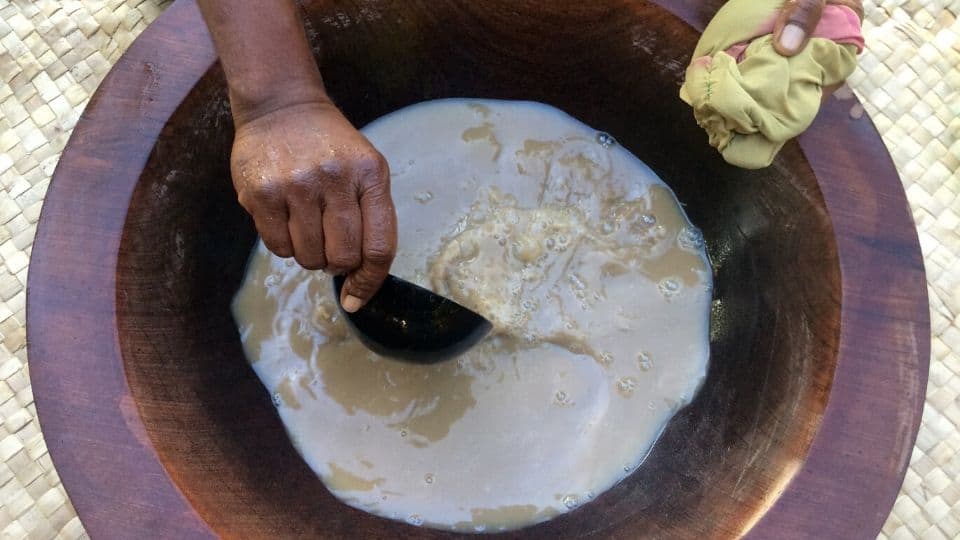
This belongs to the nightshade family, like eggplants.
As an herbal supplement, kava contains compounds called kavalactones, which react to neurotransmitters like GABA to possibly reduce symptoms of anxiety. (13, 14)
Studies have found kava beneficial for stress relief and as a sleep aid with minimal side effects.
Bear in mind that kava can interfere with how your liver processes certain medications which could increase your risk of toxicity.
10. Green Tea
This has caffeine, which you may assume makes anxiety worse. However, green tea also contains a special amino acid called l-theanine, which people often take to “balance” the effects of caffeine and reduce jitters. (15)
Have you ever noticed a feeling of calm alertness after drinking a cup of tea?
That’s the l-theanine coming to life.
11. Ashwagandha

This is another popular herbal supplement used throughout Ayurvedic medicine for it’s potential to reduce stress.
Studies have found that ashwagandha might reduce cortisol levels: 30% on average! (16)
Another study found that 88% of people with stress disorders also report less anxiety while taking ashwagandha, compared to just 50% who were given a placebo. (17)
Keep in mind that adaptogenic herbs like ashwagandha and medicinal mushrooms don’t work instantly. They take time to build up in your system.
Make sure you take your adaptogens every day for a few weeks before adjusting your doses.
Other Factors to Consider

We call calming herbs supplements for a reason: they should fill in gaps when you’re taking other measures to reduce and prevent stress.
Follow these suggestions to improve your stress response naturally.
- Exercise for at least 30 minutes each day.
- Remove inflammatory foods like high-sodium foods, sugar, and alcohol from your diet.
- Try to reduce your caffeine intake.
- Write your stressful thoughts out on paper.
- Keep a daily planner.
- Talk to a therapist.
- Learn to say “no” when responsibilities start piling up.
Once you’ve started to make changes, calming herbs can supplement your efforts!
